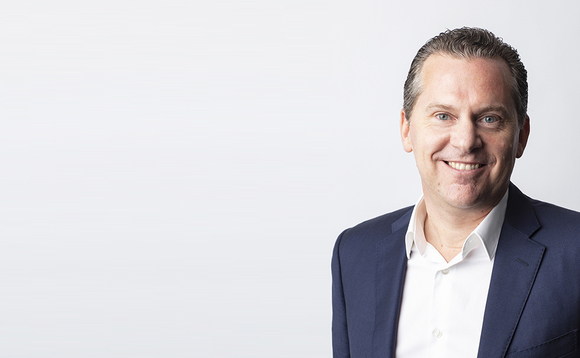
GP Profile: Tyrus Capital plans secondaries deployment drive

In a market presenting increasing opportunities for Tyrus Capitalтs late-stage and mature secondaries-focused private equity strategy, Unquote speaks to Gunter Waldner, head of private equity, about the firmтs deployment plans and outlook.
Since its foundation in 2012, Tyrus has raised five private equity funds, each of which have had a 5+1+1 lifespan and a 12-month investment period. Its LPs are typically family offices, high net-worth individuals, and institutions.
Between 70% and 75% of the GP's private equity activity is made up of secondary LP stake deals, usually in years seven to eight of a fund's life (but these can go as late as 10 or 12). Tyrus Capital typically deploys private equity tickets of EUR 5m-EUR 25m for its mature and tail-end secondaries deals, and targets discounts of 20% per deal.
"Secondaries are an attractive niche in the PE market and an area ripe for some changes and improvements," Waldner told Unquote. "It has grown, but nothing much has really changed since I started in the market. We've always wanted to make secondaries and PE accessible to more people, especially to investors who are put off by the long holding periods and fund terms."
Besides its secondaries activity, 20-25% of Tyrus' activity in the private equity space is made up of direct pre-IPO or co-investment deals — an example being a deal that saw Tyrus Capital gain exposure to South Korea-based e-commerce platform Coupang ahead of its IPO, Waldner said.
In August 2021, the GP launched its sixth fund — Tyrus Capital Global Alpha Fund — which is an open-ended vehicle with a hedge fund-esque structure. Of the fund's NAV, 20-30% is typically turned into cash each year.
"Our strategy aims to deal with the fact that DPI is getting lower, and secondaries discounts have largely disappeared; the average secondary fund is only 60-65% returned on a net basis and a third of the capital makes no return," Waldner said, adding: "By contrast, we draw 100% from our investors very quickly and then invest into short-duration, mature assets. Our funds target a very quick return of proceeds so our investors have the option either to use their capital for their own businesses and other investments, or to roll over their proceeds."
Secondaries opportunities
In the current market, Tyrus' strategy is one of the various options available to private equity investors that can allow them to manage their portfolios. "What we offer is a liquidity solution that allows the seller to clean up their portfolio, and we're looking for motivated sellers," Waldner said. "What you see in any downturn is sellers coming back that are not distressed, but they are stressed. They want or need to raise liquidity, or you see larger institutions who need to sell older (and sometimes newer) fund interests owing to the denominator effect, to lower their NAV."
Tyrus often buys stakes from family offices, small regional pension funds, and funds-of-funds for its private equity secondaries deals. The LPs' need for managing their re-ups in a crowded fundraising market is also having an impact on Tyrus' deal flow. "Re-ups are also a motivation to sell, with investors raising liquidity to commit to new funds when the proceeds from their existing portfolio are drying up," Waldner said. "They often want to get rid of mature investments, including in funds where they haven't re-upped in a few vintages, so that they can keep up their pace of commitments."
Although GP-led deals are currently a hot topic, these deals do not form a significant part of Tyrus' strategy. "We do some GP-led transactions, but you can't usually get discounts in a continuation fund and we don't think that the valuations are reasonable anymore," Waldner said. "And the duration is an issue — we would take part in one with a base case of three years, but not five years-plus. Secondaries investors are desperate to deploy, and it makes sense for a selling LP if they have made 2-3x money and can then get liquidity. But secondaries GPs target a return of well below 2x so they can pay more, but it is at higher risk. There is always the question of why the manager is selling to a secondary fund and not a buyout fund."
Stepping up deployment
Tyrus Capital's private equity strategy currently has AUM of around USD 500m, of which 50% is within its new Global Alpha Fund. The fund's net NAV has increased by 27.5% since its launch. The firm intends to grow the AUM of the Global Alpha strategy itself to more than USD 500m, with a longer-term goal of growing this to USD 1bn.
Given the opportunities it is currently seeing, Tyrus expects to step up its private equity investments. "Our buy plan has grown significantly as we are seeing bigger discounts and more deal flow," Waldner told Unquote. "In Q1 2022, we invested more than USD 75m as we happened to have a lot of liquidity. Our target is eventually to invest several hundred million euros every year."
In 2021, Tyrus announced a partnership with Germany-based sponsor SGT Capital, as reported. This followed the GP's announcement that it was to buy software platform Utimaco in an SBO from EQT.
"We took part in the Utimaco buyout, helping to raise the money for it and to do the deal," Waldner said. "This represents the kind of direct investments that we occasionally make as part of our strategy, and we will continue collaborating with SGT, and potentially with other firms." This collaboration will include partnerships under the GP's platform with our structured trades and event strategy, which is led by Tony Chedraoui, Tyrus Capital's founder and CIO. "Our efforts in this space are about finding synergies in relationships, LPs, and sourcing capabilities," Waldner added.
Latest News
Stonehage Fleming raises USD 130m for largest fund to date, eyes 2024 programme
Sponsor acquired the public software group in July 2017 via the same-year vintage Partners Group Global Value 2017
Stonehage Fleming raises USD 130m for largest fund to date, eyes 2024 programme
Czech Republic-headquartered family office is targeting DACH and CEE region deals
Stonehage Fleming raises USD 130m for largest fund to date, eyes 2024 programme
Ex-Rocket Internet leader Bettina Curtze joins Swiss VC firm as partner and CFO
Stonehage Fleming raises USD 130m for largest fund to date, eyes 2024 programme
Estonia-registered VC could bolster LP base with fresh capital from funds-of-funds or pension funds









